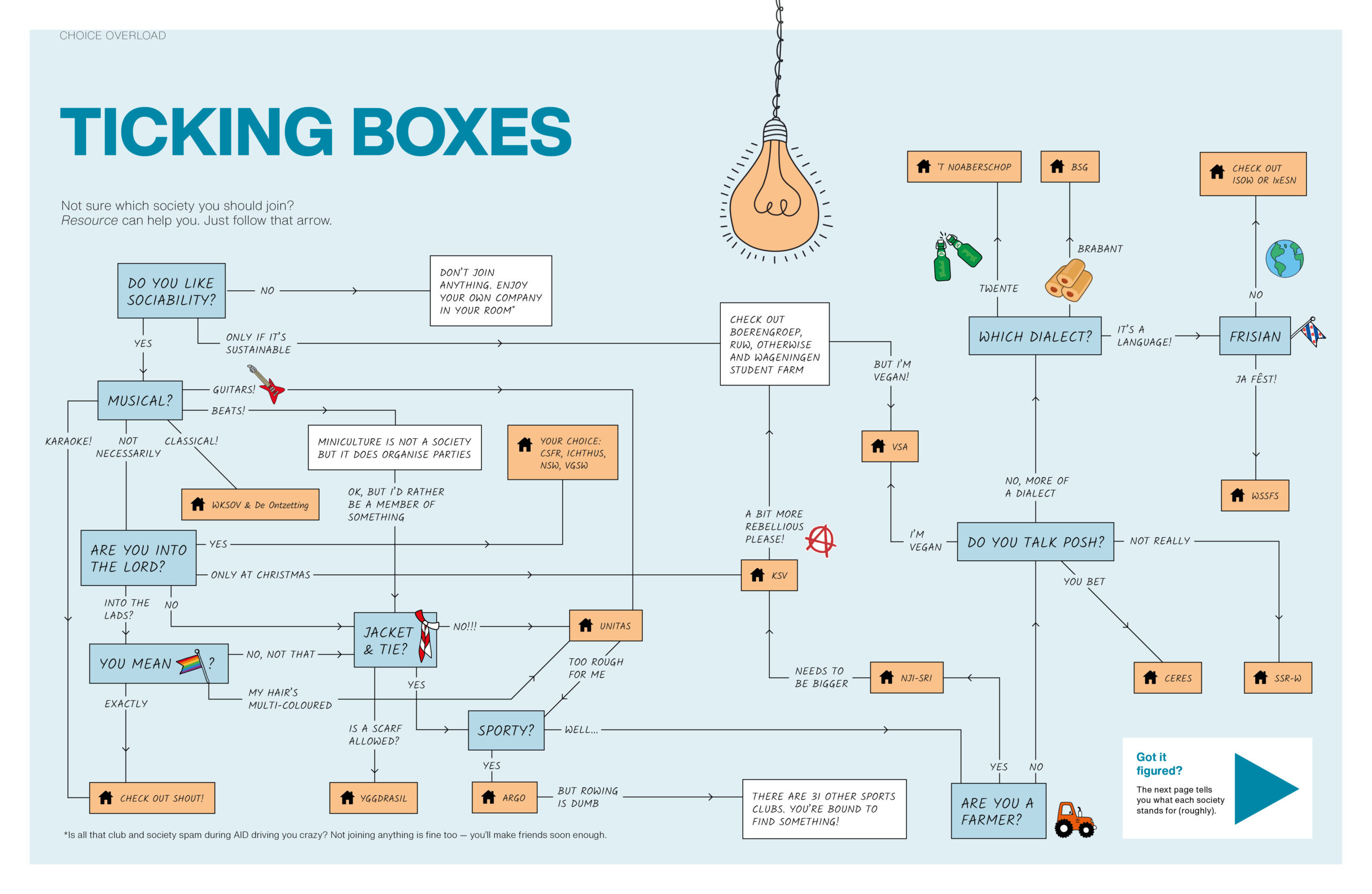A year on the board, serving in a commission or an honours programme… Already less accessible to ‘vulnerable students’ and the long-term study fine will only make that worse, ISO fears, based on a new study.
Studying is more than merely accruing credits, according to ISO. Students develop their skills in part as a result of extracurricular activities such as a year on a board or co-determination council. Others follow an honours programme. This is a valuable way to build a network, develop skills, and discover interests. However, not nearly all students opt for such activities. Some are simply not interested, but others feel hampered in doing so, a ResearchNed study commissioned by ISO shows. The agency asked just under 64,000 students about their considerations.
Born
One of the conclusions is that where you were born matters. Students with a non-western background are more hesitant to take on extracurricular activities. The same applies to students whose parents have a lower level of education. Financial concerns affect 42 per cent of the students with a non-western background, according to those who don’t partake in such activities. The same is true for 30 per cent of the students with a Dutch background.
They don’t want to fall back or base their decision on financial concerns, the survey shows. The report does not provide details, but a possible explanation is that they have to use their time for side jobs or are wary of taking out a loan.
And that is precisely what worries ISO, as this rift will only grow with the long-term study fine. The fine will affect an estimated 95,000 students per year, who will be required to pay an additional three thousand euros in tuition fees if they fall back more than one year in their bachelor’s or master’s.
Exploring
The investigators note that the percentages must be interpreted as an initial exploration and paint a general picture. Relatively few university students, first-year students, women and students whose parents are highly educated participated in the survey. In ISO’s view, the survey provides ample arguments against the long-term study fine. ‘The fact that large groups of students are excluded from meaningful opportunities is unacceptable’, says chair Mylou Miché.
The organisation adds that it is not just about the students themselves, as others also benefit from their efforts. ‘Students who participate in co-determination councils, for example, contribute to the quality of education’, a press release states. And: ‘Students who serve on a board for a year provide an invaluable contribution to their city’s student life.’
Protest
Hundreds of students took to the streets of The Hague last Friday in a protest against the long-term study fine. ISO was among them, as were representatives of the Wageningen Chamber of Associations. Minister of Education Eppo Bruins debates the budget cuts and the position of students in the House of Representatives today.
This article in Resource showed that the reintroduction of the long-term study fine results in more than just some additional study pressure. It also increases fear amongst students that they may have chosen the wrong programme, possibly increases financial stress (with the added effects on students’ well-being) and makes it more difficult to recruit board members, etc.
Christel Konings, chair of the Wageningen Chamber of Associations, stated at the time: ‘After years of investing to reduce stress, a fine is now introduced that results in a culture that mercilessly punishes mistakes. It makes me wonder: what do you want from students? I understand that budget cuts are necessary, but where is the compromise?’

 Fewer students will consider serving a year on a board now that the long-term study fine hangs over their heads, according to the student organisation ISO. Illustration Resource
Fewer students will consider serving a year on a board now that the long-term study fine hangs over their heads, according to the student organisation ISO. Illustration Resource 
![[Comment] Firm decisions](https://www.resource-online.nl/app/uploads/2025/01/4-Commentaar-shutterstock_2336970509.jpg)
